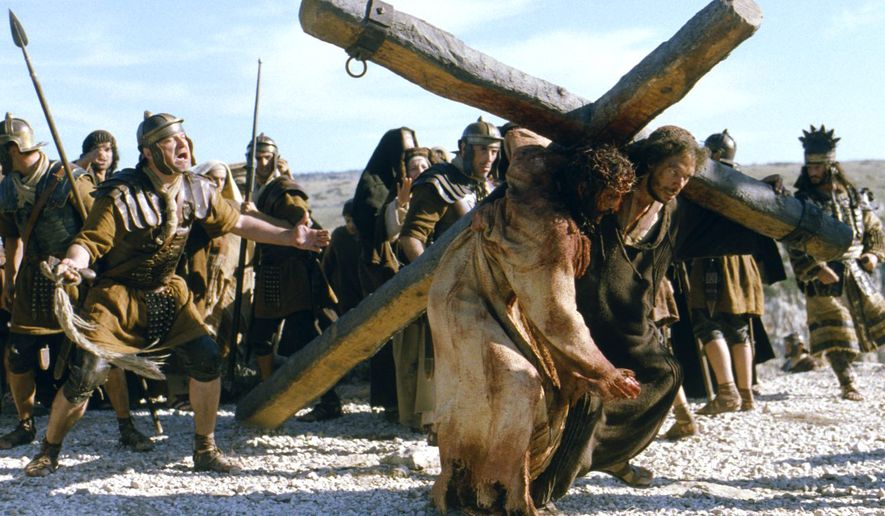There is no question anymore about the commercial value of biblical dramas. Two biblical dramatizations have been true blockbusters. Mel Gibson’s 2004 “The Passion of the Christ” was the highest-grossing R-rated film in American history. The National Catholic Register reported that “Because only the biblical languages of Aramaic, Hebrew and Latin were used, it also became the highest grossing non-English language film of all time.” The next blockbuster was the 2013 History Channel’s “The Bible,” which has more than 100 million cumulative views, including the feature film version. Both projects are still very much in circulation.
The two dramas have a number of characteristics in common, aside from their enormous popularity. The first is that they are very realistic. Mr. Gibson pioneered this approach and it has been very controversial. The Hollywood rating of “R” was given because of the graphic violence and cruelty which was depicted. Some viewers were offended by this. However, the documentary style of the film seems to justify depicting events as they actually occurred, however gruesome they may have been. Modern Islamic State of Iraq and Syria (ISIS) executions have reminded us that there are some very cruel and violent people in this world.
A second characteristic of these films is the controversy about their accuracy. The first and obvious consideration is that a drama must depict far more details than are reported in the Bible. The dramatist must therefore “invent” a multitude of such details – dialog, personalities, environments, actions, costumes, artifacts, even mythical people. Mr. Gibson faced the most criticism, being the first. A traditionalist Catholic himself, Mr. Gibson actually relied more on evangelicals than on his own churchmen. The appropriateness of some of the sequences in “The Passion” was disputed by some scholars, but it appears that the underlying issue was shock at the realism.
On Easter Sunday, April 4, the latest entry in this genre will air on NBC television. It is called “A.D. The Bible Continues.” Like the 2013 release, this miniseries is produced by Mark Burnett and his wife, actress Roma Downey. Mr. Burnett is best known for his TV reality shows “Shark Tank” and “Celebrity Apprentice.” His manner in person belies the sharp edge of these shows, but it is this element of realism which dominates the new series. The larger- than-life characters leap out of the pages of the New Testament. The crucifixion scene is hard to watch as the spikes are driven into the hands and feet of Jesus. Everyone in the audience of our sneak preview flinched at every stroke of the mallet.
The production values of the entire project are excellent, obviously the product of a highly professional team. For one familiar with the biblical stories, however, some of the casting and dialog comes as something of a jolt. The plot seems occasionally a bit hard to follow, so the viewer is hereby warned to pay close attention. Mr. Burnett, however, has learned from Mr. Gibson’s experience regarding accuracy and appropriateness. This production was reportedly monitored throughout by carefully vetted biblical scholars and pastors. Aside from the shocking violence, there may be less criticism on that score. Another treatment of the same time-frame is found in the new book “The Third Day” by Mark B. Roddy. Mr. Roddy’s emphasis on the utter consternation and fear felt by the Apostles beginning the night after their leader and savior had been executed as a criminal is dramatized convincingly by “A.D.” Jesus’ Resurrection on Sunday morning was welcome to the confused Apostles not only as a testament to their faith in Jesus, but also as relief from the terrible anxiety left in the wake of his death.
The miniseries airs on the evening of this coming Easter Sunday and shows what Easter originally was all about.




Please read our comment policy before commenting.